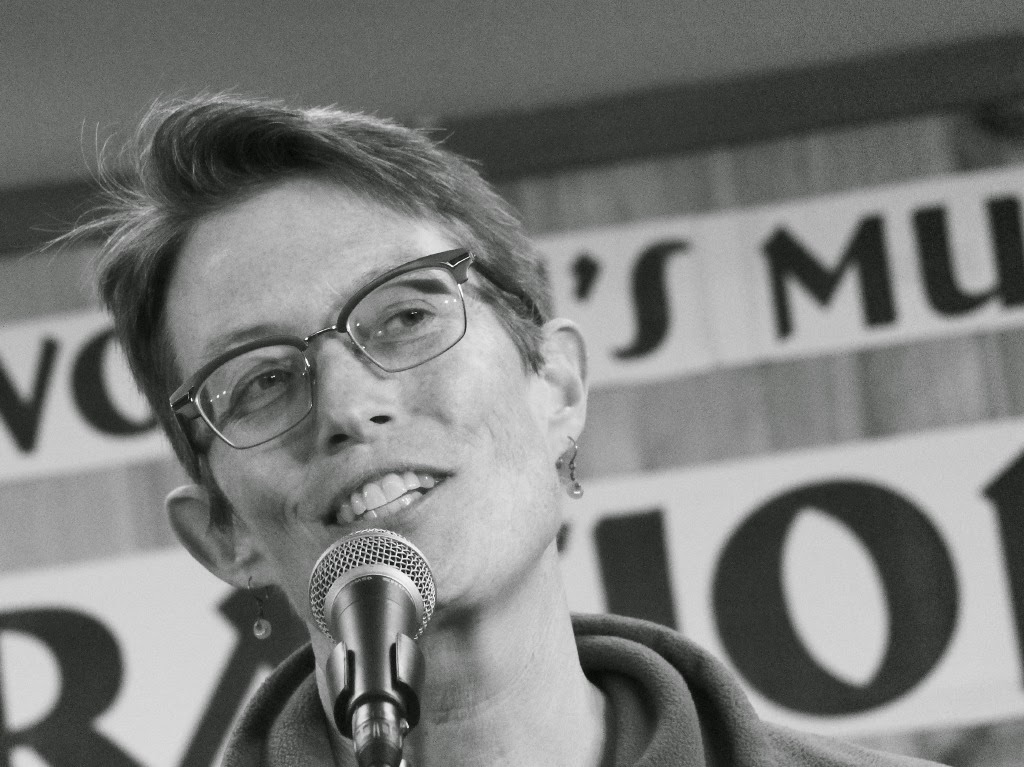Last night Tom Petty’s voice on NPR surprised me. It was more dissonant and more tremulous than I expected from a rockstar releasing another collection after 30 continuous years of crazy popularity. He said things like people being able to recognize one of his songs after hearing just a few opening notes was somewhat terrifying. He said about each concert,
You just want to be as wonderful as everyone thinks you are and you know you’re not (Laughing). So, something takes place where you reach down so deep and pulls from so far inside your soul that this music happens and you all reach the place you wanted to reach together – you and the audience. Then getting over that takes all night.
To listen to someone as accomplished who remains as vulnerable helps me feel less alone.
Don’t get me wrong. I’m no Tom Petty. I’m a poet standing at the edge of publishing my first novel. Because the book attempts to speak into the ear of the reader so closely that my lips practically touch, some people are responding very intimately. Some relatives have cried reading the opening pages because they know so much of the story is true (I really did teach and coach crew in a boarding school, and my best friend really did drown that year in a rowing accident), and they can’t stand the pain.
One of my sisters asked if the debilitating grief that the character, Taylor, the teacher and rowing coach, feels when she loses her best friend is true, and I said yes. My sister said softly, “Where was I?” Her tenderness thirty years after the death of my best friend does more than just heal me; it’s like replacing boards infected with dry rot and shoring up my house.
Publishing this novel is very different than publishing poetry. The way I’ve written this novel strips me bare. My poetry is confessional and intimate, but there’s something about storytelling that puts the reader directly into the action, into the ethical and emotional dilemmas that poetry doesn’t, especially since poetry isn’t necessarily narrative. To stand the pain and pleasure of the people reading my story, to stand my nakedness even under the veil of fiction, triggers my strong powers of denial. Some internal mechanism slaps up walls, a ceiling, reinforced floors, and I have a compartment for the pain of the story and my telling of it.
With that mechanism triggered, the story becomes so distant I can remove semicolons or add them, rewrite small sections, examine colors in the covers, leaf through the physical book, and not feel. And I come from a long line of numb-ers. Eating too much and drinking too much and working too hard are normal. It’s miraculous what survival mechanisms can do for a writer. The irony is that the story is all about feeling, all about the horrible consequences of going numb, and to publish it, I’ve gone numb again, to a degree. To another degree, I’m feeling terror.
Being present to what is happening in this process of making my story about bullying public, is one of the most difficult exercises in mindfulness I’ve experienced. What makes the publishing process real to me is the cover photo.
Photos are intractable. To have my photo on the cover of the book has, to me, been the most powerful proof that I wrote these words. The photo, not the familiarity of the words, not my name on the cover, not the labor of it, proves that I wrote it, and no internal mechanism can deny or stuff that fact in a compartment. Long ago to deal with my memories of abuse as a child, I made drawings of the rooms I crawled out of and the closets I hid in, the house that burnt down when I was five; they gave me a type of evidence that even I couldn’t deny. The cover photo in which I am reading from an advanced copy makes the novel real. It is the antidote to denial and distancing.
 |
| credit: Jean Rosenbaum |
What an amazing thing it is when readers and writers reach “sofar inside your soul that this music happens and you all reach the place you wanted to reach together.” Maybe this is the dream of all artists. Thank God for people like Tom Petty who articulate this beautiful process: we want to connect. In art we reach into each other and sing.
Works Cited
“Tom Petty On Cheap Speakers And George Harrison.” All Things Considered. NPR. 04 Aug 2014. Web. 05 Aug 2014.